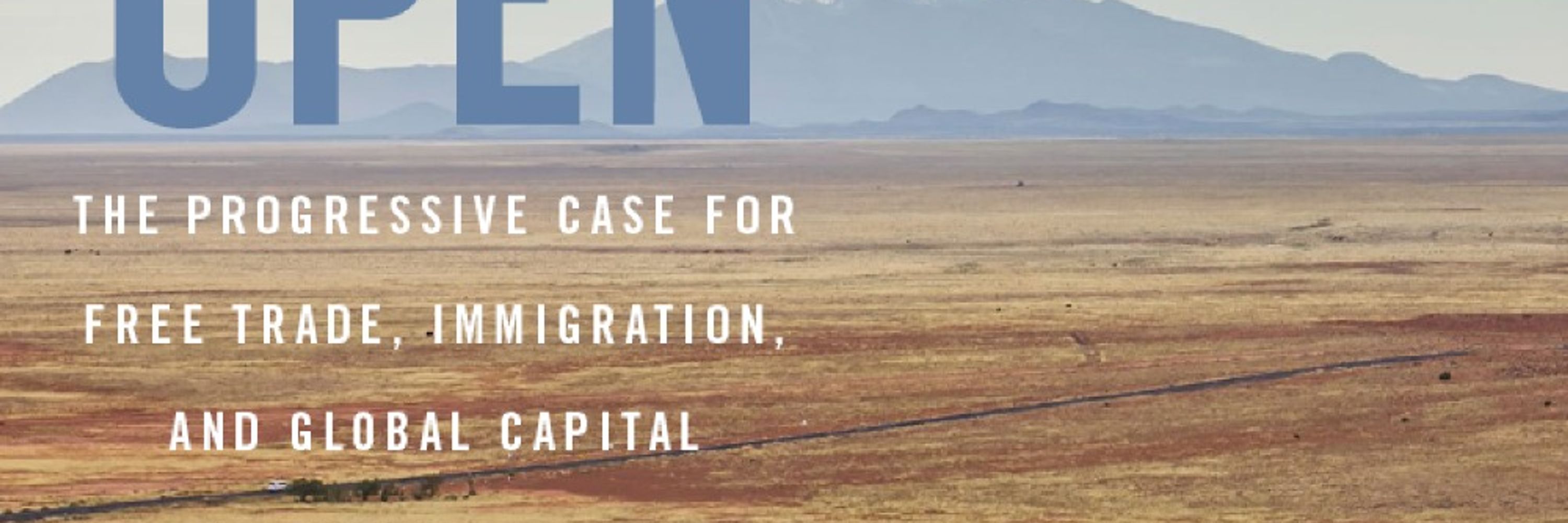
Economist; Professor @law.ucla.edu; senior fellow @piie.com; former tax DAS at Treasury; Author, Open: The Progressive Case for Free Trade, Immigration, and Global Capital
Kimberly Clausing is an American economist. She is the Eric M. Zolt Chair in Tax Law and Policy at the UCLA School of Law and a nonresident senior fellow at the Peterson Institute for International Economics. From 2021 to 2022, she was the deputy assistant secretary for tax analysis at the United States Department of the Treasury. Clausing is known for her work on international trade and tax policy, particularly the taxation of multinational corporations. .. more

Pete Returns to Fox News youtu.be/c000vQXggH4?...
Reposted by Kimberly A. Clausing

mspmag.com/arts-and-cul...
Reposted by Michael J. Taylor, Magda Teter, Kimberly A. Clausing
They kidnapped Liam Ramos.
They just executed a man on the street.
Unmask them. Prosecute them. No more secret police.
Reposted by Christian E. Weller, Kimberly A. Clausing
Ds should do that for the ICE money from OBBBA. Paring back that $$ must be a prerequisite for funding the govt
Reposted by Richard S.J. Tol, Mark A. Lemley, Joe R. Feagin , and 22 more Richard S.J. Tol, Mark A. Lemley, Joe R. Feagin, Peter Thorne, Scott L. Greer, Steve Peers, Ian Campbell, Bonnie Honig, Juan Moreno‐Cruz, Rebecca M. Bratspies, Michael D. McDonald, James Goodwin, Mark Rice, Karen O’Leary, Christina Pagel, Claire Sécail, Magda Teter, Manisha Sinha, Charles T. Mathewes, Nathan P. Kalmoe, Timothy D. McBride, Kimberly A. Clausing, David Darmofal, Peter Jacobs, Elise Thomas

Reposted by Rebecca Tushnet, Mark Rice, Kimberly A. Clausing

www.nytimes.com/2026/01/20/b...
Reposted by Joseph Schafer, Kimberly A. Clausing, David Darmofal

This Pax (Ex) Americana era was illustrated Friday, as Canadian PM Mark Carney wrapped up a trip to China--the first by a Canadian PM in 8+ years. www.thebulwark.com/p/trump-maki...
Reposted by Simon Lester

www.wsj.com/opinion/why-...
Reposted by Kimberly A. Clausing
We literally still have no idea whether the tariffs that have plunged the global economy (and politics!) into chaos were unconstitutional from Day One.
Reposted by Kimberly A. Clausing

@nytopinion.nytimes.com.
So far it is backfiring--and for the same good reasons the Fed was made independent in the first place. www.nytimes.com/2026/01/12/o...
www.youtube.com/watch?v=KckG...
www.federalreserve.gov/newsevents/s...

Reposted by David H. Kaye, Olúfẹ́mi Táíwò, Brian Keegan , and 88 more David H. Kaye, Olúfẹ́mi Táíwò, Brian Keegan, Patrick A. Jansen, Ryan Enos, Ameet Sarpatwari, Kimberly A. Clausing, Alf Norkko, Scott A. Imberman, Ryan Goodman, Michael Kevane, Jay Shambaugh, Guy Grossman, Lindsay M. Tedds, Michael A. Clemens, Marcus Credé, Michael Zimmer, Suzanne Mettler, Michael Jones‐Correa, Henry Farrell, Monika Schnitzer, Brendan Nyhan, Richard Ashby Wilson, Susan Strasser, Stephen M. Walt, Andrew Guthrie Ferguson, Aaron Sojourner, Silvia Secchi, Anne Applebaum, Robert W. Wallace, Shelly Lundberg, David Feldman, Aviel Roshwald, Nathan P. Kalmoe, Farah Mendlesohn, David Rothschild, Timothy D. McBride, Lisa Diedrich, Julia M. Wright, Christian Odendahl, Tim Stephens, David Dunning, Peter Thorne, Holger Nehring, Alessandro Rigolon, Peter Gratton, David L. Ortega, Robert B. Reich, David Darmofal, Caroline Krafft, Trevon D. Logan, Axel Bruns, Yuriy Gorodnichenko, Maria Abreu, Iikka Korhonen, Andrew Watt, Hisham Zerriffi, Charles W. Smith, Simon Lester, Will Jennings, Jonathan Wolff, Jeroen Van Bouwel, Daniel Kuehn, Kevin Milligan, Menzie Chinn, Jennifer A. Richeson, Laurent Pech, Matthew Bodie, Nandita Sharma, Daniela Gabor, Gerald Friedman, William Myers, Stuart Shapiro, Michael Evans, Edward Witten, Nazita Lajevardi, Shannon W. Anderson, Dean Eckles, Claudia Sahm, Rebecca Tushnet, Rosemary A. Joyce, Robert C. Richards, Kate Starbird, Ryan Calo, Kori Schake, Michael Müller, David R. Miller, Michael D. McDonald, Martha Starr, Peter Jacobs, Joshua S. Weitz

www.youtube.com/watch?v=KckG...
www.federalreserve.gov/newsevents/s...
Reposted by Kimberly A. Clausing
Continue to be uncertain about whether the biggest cause of uncertainty will continue.
I support these three charities that work to alleviate global poverty (in reverse alphabetical order):
1. @unicefusa.org
2. @pih.org
3. www.givewell.org
Reposted by Karen Benjamin Guzzo, Aaron Sojourner, Kimberly A. Clausing
👉 www.iipf.org/papers/Call%...
Submit your public finance paper by Feb. 15, 2026.
Further information on the congress at www.iseg.ulisboa.pt/en/event/iipf/
Organizers at ISEG 👇 and Scientific Chairs Naomi Feldman and @dforemny.bsky.social
#EconConf #EconSky
The 82nd Annual Congress of the International Institute of Public Finance (@iipf.bsky.social) will be held at ISEG Lisbon, Portugal, from August 24-26, 2026. Local organization: António Afonso, José Alves and João Pereira dos Santos (all ISEG Lisbon).
And I'm honored to be delivering one of the keynote talks. Hope to see you in Lisbon!
The 82nd Annual Congress of the International Institute of Public Finance (@iipf.bsky.social) will be held at ISEG Lisbon, Portugal, from August 24-26, 2026. Local organization: António Afonso, José Alves and João Pereira dos Santos (all ISEG Lisbon).

👉 www.iipf.org/papers/Call%...
Submit your public finance paper by Feb. 15, 2026.
Further information on the congress at www.iseg.ulisboa.pt/en/event/iipf/
Organizers at ISEG 👇 and Scientific Chairs Naomi Feldman and @dforemny.bsky.social
#EconConf #EconSky
Reposted by Kimberly A. Clausing

It added just 119,000 jobs TOTAL in 7 months since Trump's tariffs began.
The unemployment rate just hit its highest level in 4+ years.
Even Trump's Chief of Staff admits his tariffs hurt our economy.




Among the censored words: "disability," "race," "women," "trauma," "Gulf of Mexico." Short thread with the full list. 🧵

See Article 1 Section 8 of the US constitution.
This was also a theme of my recent testimony before HWM.
waysandmeans.house.gov/event/tax-su...
Reposted by Kimberly A. Clausing

Read the full testimony:
Reposted by Kimberly A. Clausing

Reposted by Kimberly A. Clausing

legal-planet.org/2025/11/20/c...
Climate inaction is *already* a big expense affecting US households costs; the most important mechanism is the impact of climate-related natural disasters on housing costs.
legal-planet.org/2025/11/20/c...




